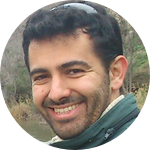About This Project
Ask the Scientists
Join The DiscussionWhat is the context of this research?
Spinal cord injury still has a huge incidence rate in our society. I have spent years studying the molecular environment after traumatism and which pathways are most involved in neuronal cell death. What if we could decrease or stop the demise of hundred of neurons that commit apoptosis in so-called secondary death that occur days or weeks post-lesion?
I started answering that question, but a year ago the project was shut down because of the cancellation of the grant that supported this project.
What is the significance of this project?
Four years ago I started my PhD in Molecular Biology and Biochemistry. I started working in a laboratory of neuroscience, in a special Hospital for paraplegics. I learned a lot about cell death and spent a lot of time gaining experience with techniques to research "in vitro" and "in vivo". After three years of molecular research, I was ready to start the therapeutic approach. I designed a specific molecular silencer (siRNA joined to a neuronal non-viral carrier) of a protein involved in cell death. After being checked favorably with cell cultures, the next step was to asses the recovery of paraplegic mice with the administration of this complex. However, due to cutbacks my grant was cancelled, and with it this project. I am certainly eager to include this project in my thesis, and then, to be able to conclude it.
What are the goals of the project?
The funds will allow me to buy and care for the adequate amount of research animals (mice C57BL/6), buy the antibodies needed to assess the silencing, and earn a salary for 8 months that will allow me to work on this project.
Budget
Research animals (mice C57BL/6) n=20, housing, caring and maintenance: $2000
Specific neuronal antibodies for immunohistochemistry studies: $1800
Other research materials (syringes, serums, ...): $650
Salary PhD student for 8 months: $15550
Total: $20000
Meet the Team
Team Bio
I completed a 5-year Bachelor's Degree in Biochemistry from the Universidad Autónoma de Madrid in Spain. Since 2008, I have been doing my PhD in Molecular Biology and Biochemistry at the Universidad Complutense de Madrid in Spain, as well as researching in the "Molecular Neuroprotection Group" in the National Hospital for Paraplegics with Dr. Rodrigo Martínez Maza. Since 2012, I have been finishing my thesis without funding due to government cuts in scientific research.Marcos Caballero López
I completed a 5-year Bachelor's Degree in Biochemistry from the Universidad Autónoma de Madrid in Spain. Since 2008, I have been doing my PhD in Molecular Biology and Biochemistry at the Universidad Complutense de Madrid in Spain, as well as researching in the "Molecular Neuroprotection Group" in the National Hospital for Paraplegics with Dr. Rodrigo Martínez Maza. Since 2012, I have been finishing my thesis without funding due to government cuts in scientific research.
Project Backers
- 10Backers
- 4%Funded
- $725Total Donations
- $72.50Average Donation
